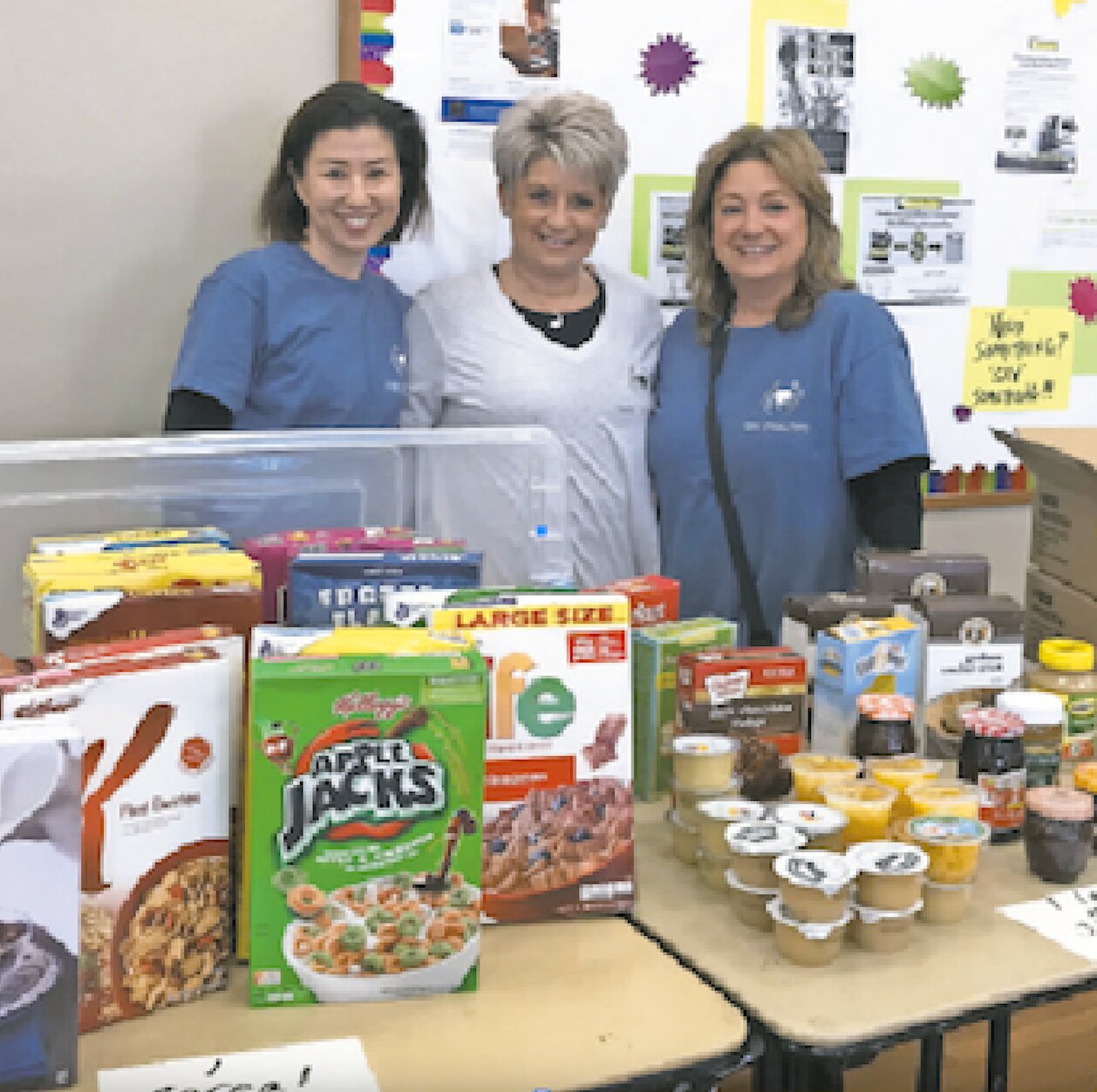Post-Covid, people are still hungry
When the coronavirus pandemic hit the United States in March 2020, many food pantries and soup kitchens closed as people working in places that traditionally provided for the food insecure were afraid to continue. This was before there were Covid vaccines, with doctors working around the clock to understand the virus that was killing thousands of people.
Making matters even more problematic for the food insecure — people without access to enough of the food needed to remain healthy — was then-Gov. Andrew Cuomo’s March 22, 2020, stay-at-home executive order. The “New York State on Pause” directive forbade non-essential businesses statewide to stay open while also restricting gatherings. New Yorkers were in lockdown for a month and remained in a state of emergency until June 7.
The number of people who were food insecure increased dramatically during this time: Not only were food pantries and soup kitchens scarce, but many people lost their jobs. But not every place providing food to vulnerable populations closed.
“All of the food pantries closed down because of the risk, but we didn’t. As soon as the restrictions were lifted, we did it outside,” said Donna Galgano from People Loving People, which worked out of First Presbyterian Church of Oyster Bay during the pandemic. “We had 300 cars one day lined up waiting for food. At the end of the day we said, ‘We did it!’”
People’s spirits were at their lowest during Covid, terrified by reports of deaths and worried about contacting the disease. Galgano did not want to add to the misery that people were experiencing.
“We would ask people what they needed, which we do today too,” she said. “That’s to give them dignity. They could choose what they wanted. We also didn’t want to waste anything giving people something they didn’t want.”
People Loving People moved to its own space on Audrey Avenue in Oyster Bay in November 2021. Today 175 families utilize the service.
For Galgano, it has been a rewarding experience.
“We’ve had people tell us because of the help we gave them they could take their kids to the doctor or buy medicine,” she said. “There are a lot of families in Oyster Bay who need help. I see over 100 families regularly.”
Linda Eastman, the director of operations for Nosh in Glen Cove, said the need for food remains high. Nosh provides emergency food delivery to individuals and families. Eastman said it delivers food to 265 families and helps 200 to 225 walk-in families each week.
Having lost its home at the Veterans of Foreign War building due to a fire in August 2021, Nosh has been housed in a new space on School Street in Glen Cove since September 2022.
Eastman said Nosh is expecting an upswing from people in need when school lets out. And more people are expected to need assistance from Nosh now that the pandemic-era increase in benefits under the Supplemental Nutrition Assistance Program has ended, although Eastman said she hasn’t noticed an upswing yet.
People Loving People is seeing five to 10 more people each week, which Galgano attributes to the end of the SNAP increase. She said when the number reaches 200, they will not be able to assist any additional people living outside the hamlet.
“It seems like Glen Cove has exploded,” she said. “Every week we get two to five people from Glen Cove. I think it’s because our place is like a little market. People even come off the street asking if they can buy stuff.”
Joan Adomsky, who coordinates the pantry at St. Dominic Catholic Church in Oyster Bay, said she is seeing the same number of people as she saw during Covid.
“The volunteers and I talked about it recently and we think it’s the price of food, how much it’s gone up,” Adomsky said. “Our parish members and groups are extremely generous in keeping our pantry full. We are able to even share some with other pantries in our community. We’ve been very fortunate.”
The pantry at the Church of St. Rocco in Glen Cove, which also relies on donations from parishioners, is in good shape too, according to coordinator Coleen Spinello. She said many came to the pantry for assistance during Covid’s peak, but more food pantries have since formed.
Spinello is on the board of the Inter Agency Council of Glen Cove, an outreach program where members network once a month. Some members such as St. Patrick’s Church have experienced an increase in people needing help. “Maybe it’s because the government supplements ran out?” Spinello wondered. “It’s odd we aren’t getting the walk-ins.”
Ingrid Morales, the outreach coordinator at Oyster Bay’s Youth and Family Counseling, is worried. The pantry, which helps the Spanish community, is very low on supplies, she said. She’s hoping the donations will increase, as many people need help.
“People aren’t giving what they used to,” she said. “I think they are holding on because everyone is struggling money-wise. I think what I’m seeing is not normal.”
The pantry does offer gift cards for Stop & Shop, purchased with donations from different organizations, but Morales said people don’t use it for food other than certain staples. “They use the gift cards for Pampers, toothpaste, milk and eggs,” she said. “They want to get food from us like rice and beans.”

 44.0°,
Mostly Cloudy
44.0°,
Mostly Cloudy 





